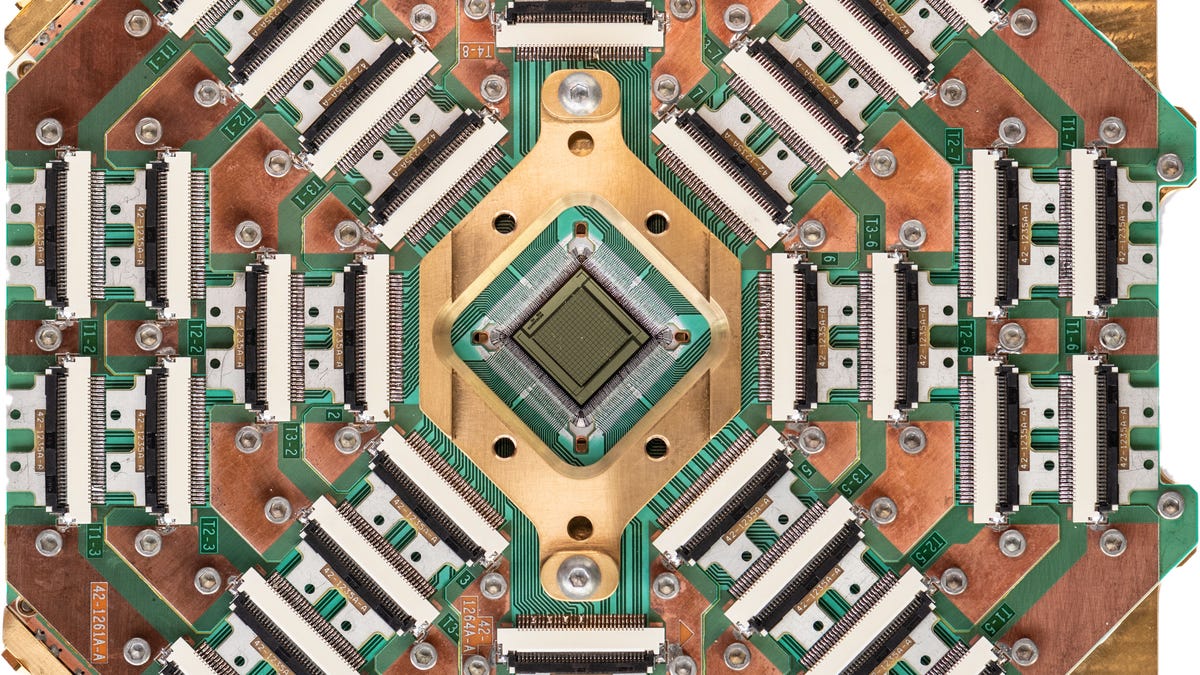Quantum computer maker D-Wave embraces its rivals' approach
The oldest quantum computer maker radically revamps its product plans.

D-Wave's Advantage quantum annealer chip
D-Wave Systems, the world's oldest quantum computing company, has radically overhauled its product road map, embracing an approach adopted by newer rivals like Google, Honeywell, IBM and IonQ.
Founded in 1999, D-Wave has developed a specialized type of quantum calculation device called an annealer that's suited for specific types of calculations like optimizing a supply chain. On Tuesday, it announced plans to also make the more general-purpose quantum computer its competitors favor along with a programming infrastructure to help customers use either.
Annealers take advantage of the peculiarities of quantum physics, the rules that govern the ultrasmall particles like atoms. In contrast, general-purpose quantum computers can tackle a broader range of tasks by applying a series of careful tweaks to an interconnected collection of data processing units called qubits.
"This is an application that's particularly useful in fields like materials science and pharmaceutical research," D-Wave said in a statement.
Quantum computers have progressed significantly but remain years away from fulfilling their promise. Many companies are sinking billions of research dollars into the field, seeing it as a new computing frontier that could revolutionize materials science and some other tasks out of the reach of traditional computers.
D-Wave will still sell its annealers. It announced Tuesday plans to release more powerful versions of its Advantage line in 2023 and 2025. It didn't announce a release schedule for its general-purpose quantum computer.
The company's general-purpose quantum computer will incorporate a key quantum computing technology called error correction that most quantum companies also are eagerly pursuing. Error correction is designed to keep quantum calculations running longer, a major challenge with today's designs since qubits are so easily perturbed by outside influences.
D-Wave's plans include a system with 60 qubits that can be ganged together through error correction technology into a single "logical" qubit. After that will come a 1,000-qubit machine with four logical qubits, the company said.
Correction, 10:08 a.m. PT: The next generation Advantage annealer products will start arriving in 2023.

